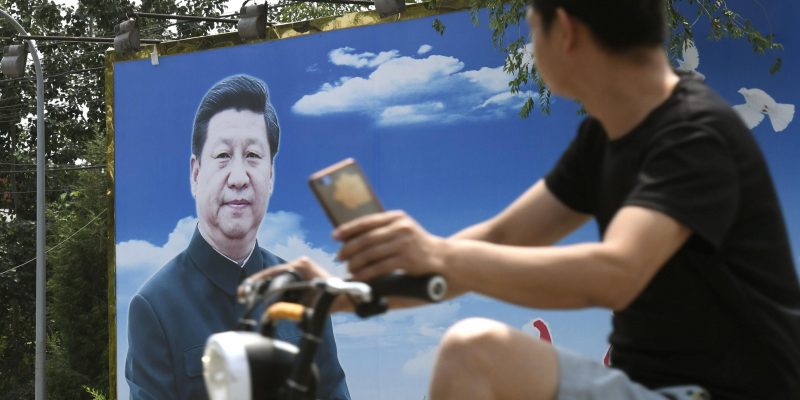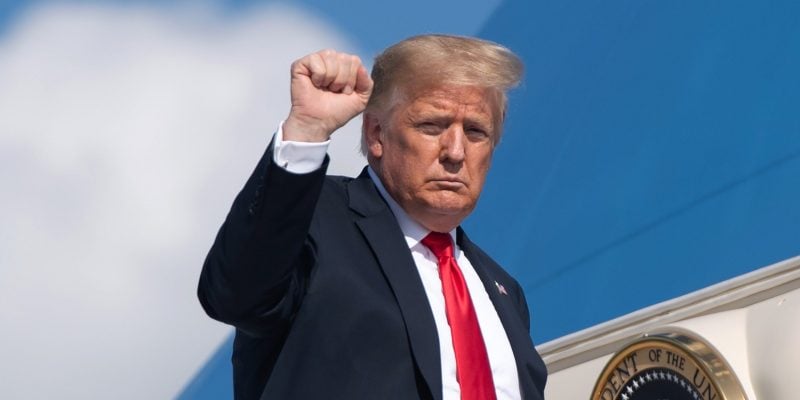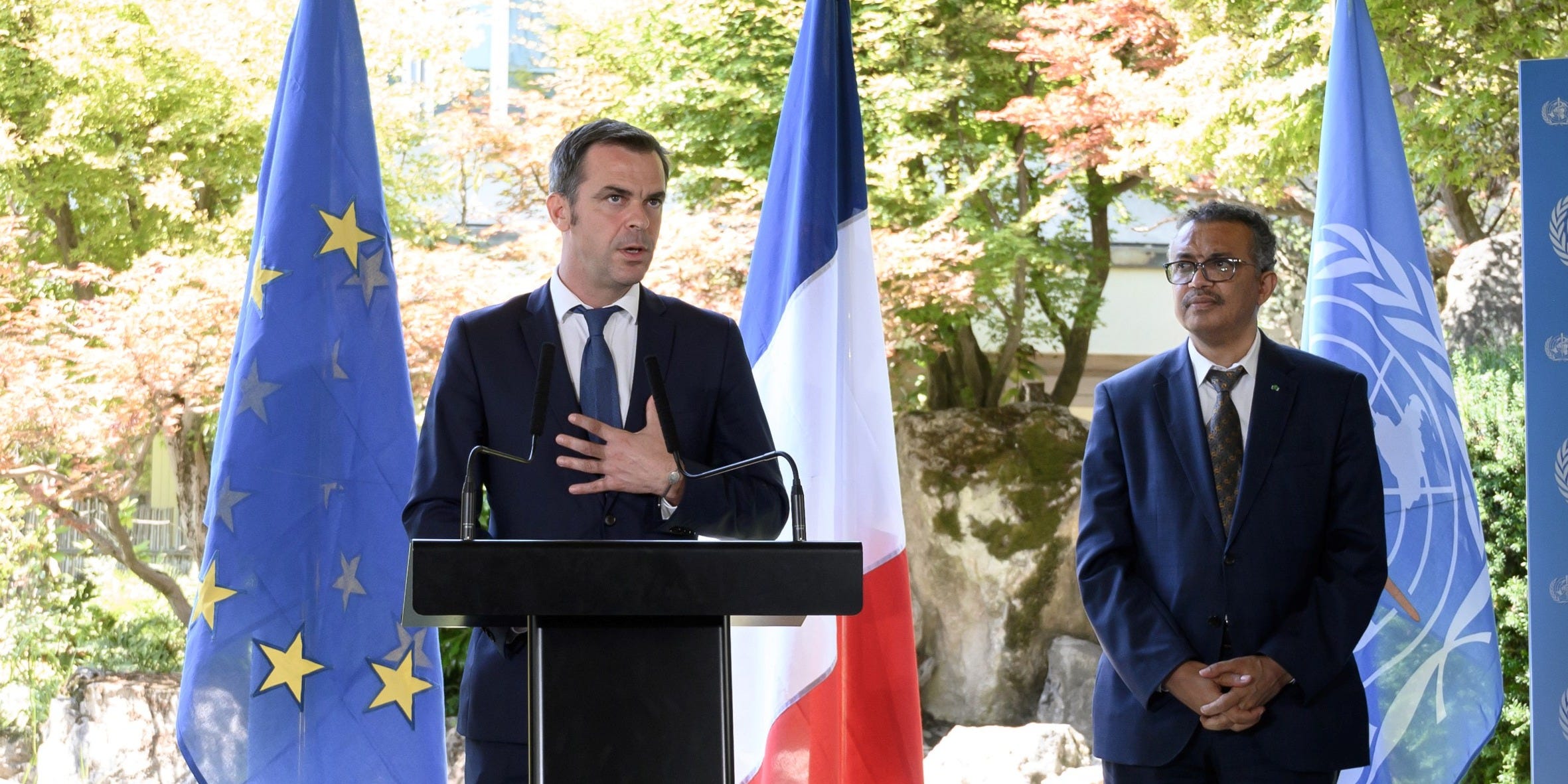- France and Germany on Thursday pledged a total of $716 million to the World Health Organization.
- The news comes a month after the US withdrew all funding – worth 15% of the WHO’s total annual budget last year – and slammed the WHO’s “China-centric” mindset.
- The WHO has been dogged by allegations that it helped China cover up the coronavirus early on. China has sought to extend its reach in the agency by pledging more than $2 billion to it.
- The health ministers of France and Germany hinted that the US withdrawal would weaken the body and reiterated their commitment to improving global health.
- Visit Business Insider’s homepage for more stories.
France and Germany have pledged $716 million to the World Health Organization amid an abrupt exit by the US and growing Chinese influence over the agency.
Germany’s health minister, Jens Spahn, pledged $560 million, and his French counterpart, Olivier Veran, pledged $156 million at a meeting in Geneva on Thursday.
Veran said $100 million would go toward an academy in Lyon, alongside an the additional $56 million commitment from President Emmanuel Macron. Veran said France would supply the WHO with 100 million masks.
Spahn said the money from his government would go to tackling the coronavirus pandemic.
The moves nearly one month after President Donald Trump announced on May 29 that the US would no longer fund the body and is "terminating" its relationship with the agency. The US was the WHO's largest benefactor, providing 15% (or $400 million) of its budget.
Prior to the split, Trump had accused the WHO of being "China-centric" and complicit in a cover-up of the outbreak in its early days.
An investigation by The Associated Press found that China withheld key data from the WHO for weeks when it was needed most. China has insisted that it made its data available as soon as possible.
Since March, China has steadily increased its payments into the WHO, with $2 billion pledged on May 18. China's growing involvement in the WHO, coupled with Trump's dismissal of it, made the US appear "petty and reluctant to engage," Business Insider's Alexandra Ma previously reported.
The House Foreign Affairs Committee has since urged Trump to reconsider abandoning the WHO.
On Thursday, the chief of the WHO, while not addressing the issue of US withdrawal, praised both France and Germany for their commitment to global health.

"We are getting today all the support we need, politically and financially. Both Germany and France are long-standing friends of WHO," Tedros Adhanom Ghebreyesus said.
Veran, the French health minister, said his country's contribution "is not aimed to replace the US contribution" but "is there to remind the World Health Organization that it can count on the friendship of the EU."
Spahn, the German health minister, said: "Isolated national answers to international problems are doomed to fail."

"We need a strong, efficient, transparent and accountable WHO today more than ever," Spahn said, adding the WHO needs "decision-making processes driven by the facts, and not by politics."
Spahn said it was unclear how the US exit would affect the WHO going forward, according to the AP.











